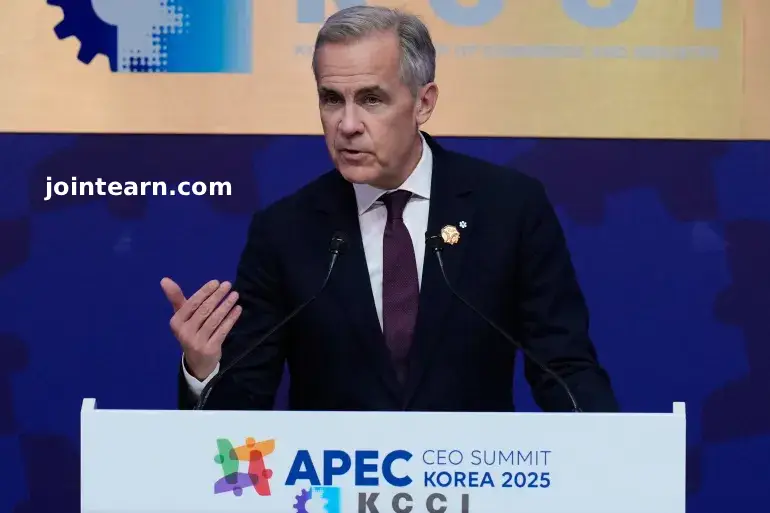
Canada and China Signal a Diplomatic Thaw
In a significant diplomatic development, Chinese President Xi Jinping and Canadian Prime Minister Mark Carney met on Friday during the Asia-Pacific Economic Cooperation (APEC) Summit in South Korea, signaling a step toward repairing long-fractured Canada-China relations.
Both leaders agreed to pursue a pragmatic and constructive approach to improving ties, emphasizing the importance of dialogue, trade cooperation, and political engagement. A Canadian government statement described the meeting as a turning point in bilateral relations, reflecting a shared interest in fostering stability and mutually beneficial cooperation.
Xi Jinping reportedly stressed that the relationship between the two nations is showing signs of recovery, stating:
“We are willing to work together with Canada to take this meeting as an opportunity to promote the return of bilateral relations to a healthy, stable, and sustainable track as soon as possible.”
Prime Minister Carney accepted an invitation from Xi to visit China, although the date for the visit has not yet been announced. Carney told reporters that he was “very pleased” with the outcome, calling it an opportunity for Canadian families, businesses, and workers while creating a path to address existing challenges.
Historical Context: Strained Ties
Canada-China relations deteriorated sharply in 2018 following Canada’s arrest of Huawei executive Meng Wanzhou, at the request of the United States. In retaliation, China detained two Canadian citizens, Michael Kovrig and Michael Spavor, charging them with espionage.
Although the release of Kovrig, Spavor, and Meng in 2021 eased tensions slightly, diplomatic and trade relations have remained rocky, marked by recent trade conflicts and tariff disputes.
In 2024, Canada imposed 100% tariffs on Chinese electric vehicles (EVs) and 25% tariffs on steel and aluminum, prompting retaliatory tariffs from China on Canadian canola, seafood, and pork. Both governments have since indicated willingness to negotiate solutions, including potential tariff rollbacks contingent on resolving trade irritants.
Trade and Economic Cooperation
During the APEC summit discussions, Xi and Carney highlighted the importance of expanding pragmatic economic and trade cooperation. Specific areas of focus included:
- Reducing trade barriers on EVs, canola, and seafood
- Strengthening cooperation in energy and industrial sectors
- Encouraging bilateral investments to benefit Canadian and Chinese businesses
Carney’s administration is actively pursuing trade diversification to reduce Canada’s overreliance on the United States, particularly as President Donald Trump has indicated plans to raise tariffs on Canadian goods. Carney has stated ambitions to double Canada’s non-US exports over the next decade, emphasizing a strategic pivot toward a more globally diversified trade portfolio.
Expert Perspectives
Analysts caution that while the recent meeting indicates improved diplomatic tone, Canada must approach relations with China carefully. Vina Nadjibulla, vice president of the Asia Pacific Foundation of Canada, noted:
“The meeting signals openness at the highest levels, but this is not a return to strategic partnership. Canada must remain mindful of China’s security threats, including its Arctic ambitions.”
Experts also warn against viewing China as a substitute for Canada’s trade relationship with the US. Diversification is necessary, but overdependence on either major power may leave Canada vulnerable to economic and political risks.
The Road Ahead
The Canada-China rapprochement comes at a critical moment amid ongoing global trade tensions, rising US tariffs, and shifting geopolitics in the Asia-Pacific region. Both leaders have directed officials to rapidly resolve trade issues and explore further areas of collaboration, signaling cautious optimism for future cooperation.
While Canada continues to navigate its complex relationship with China, the recent APEC meeting marks a significant step toward rebuilding trust and stabilizing bilateral ties, providing potential opportunities for economic growth and diplomatic engagement.


Leave a Reply